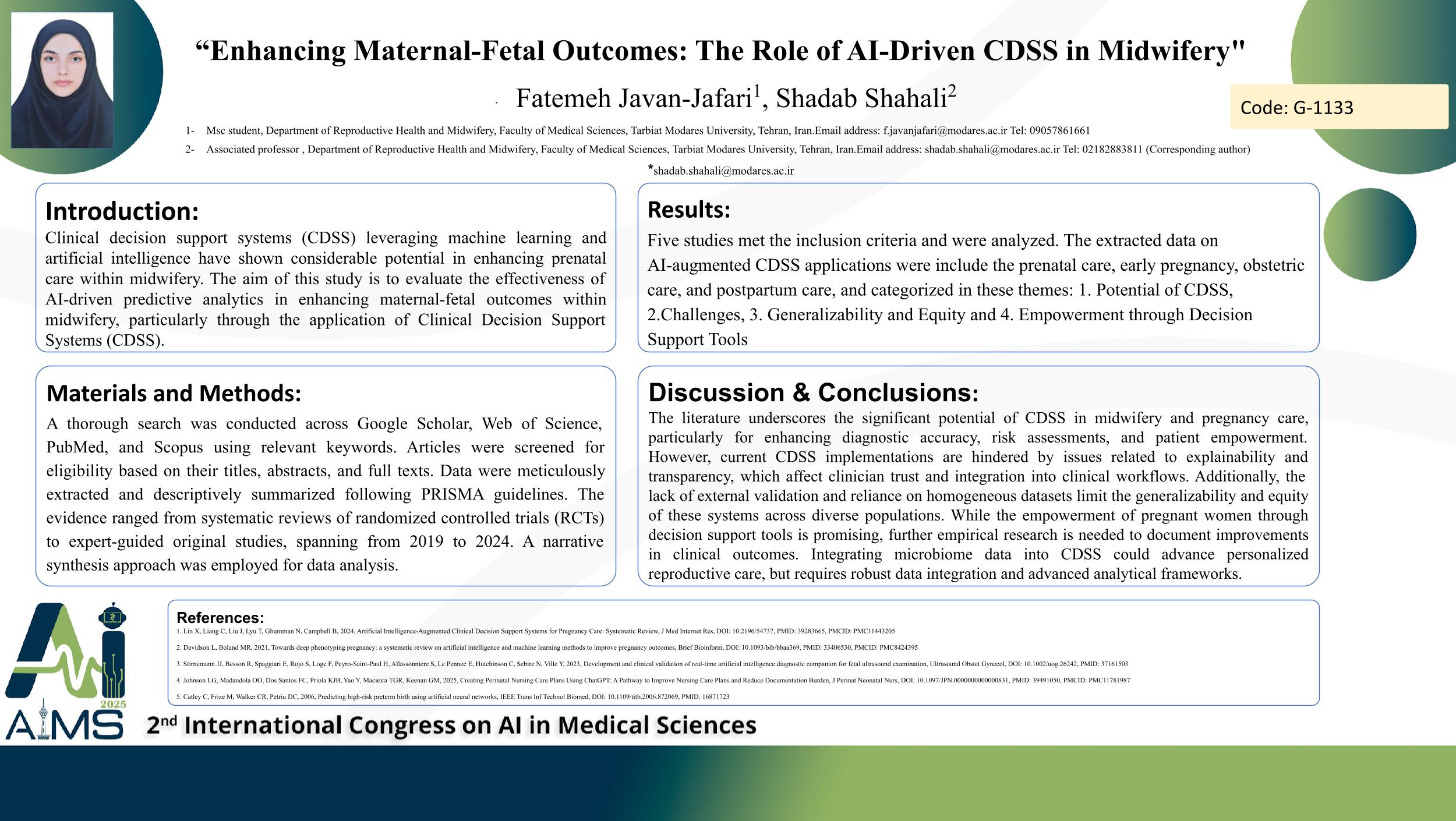Enhancing Maternal-Fetal Outcomes: The Role of AI-Driven CDSS in Midwifery
Code: G-1133
Authors: Fatemeh Javan-Jafari ℗, Shadab Shahali *
Schedule: Not Scheduled!
Tag: Intelligent Virtual Assistant
Download: Download Poster
Abstract:
Abstract
Background and Aims: Clinical decision support systems (CDSS) leveraging machine learning and artificial intelligence have shown considerable potential in enhancing prenatal care within midwifery. The aim of this study is to evaluate the effectiveness of AI-driven predictive analytics in enhancing maternal-fetal outcomes within midwifery, particularly through the application of Clinical Decision Support Systems (CDSS). Methods: A thorough search was conducted across Google Scholar, Web of Science, PubMed, and Scopus using relevant keywords. Articles were screened for eligibility based on their titles, abstracts, and full texts. Data were meticulously extracted and descriptively summarized following PRISMA guidelines. The evidence ranged from systematic reviews of randomized controlled trials (RCTs) to expert-guided original studies, spanning from 2019 to 2024. A narrative synthesis approach was employed for data analysis. Results: Five studies met the inclusion criteria and were analyzed. The extracted data on AIaugmented CDSS applications were include the prenatal care, early pregnancy, obstetric care, and postpartum care, and categorized in these themes: 1.Potential of CDSS, 2.Challenges, 3. Generalizability and Equity and 4. Empowerment through Decision Support Tools . Conclusion: The literature underscores the significant potential of CDSS in midwifery and pregnancy care, particularly for enhancing diagnostic accuracy, risk assessments, and patient empowerment. However, current CDSS implementations are hindered by issues related to explainability and transparency, which affect clinician trust and integration into clinical workflows. Additionally, the lack of external validation and reliance on homogeneous datasets limit the generalizability and equity of these systems across diverse populations. While the empowerment of pregnant women through decision support tools is promising, further empirical research is needed to document improvements in clinical outcomes. Integrating microbiome data into CDSS could advance personalized reproductive care, but requires robust data integration and advanced analytical frameworks.
Keywords
artificial intelligence,maternal-fetal health,midwifery,Clinical decision support systems
